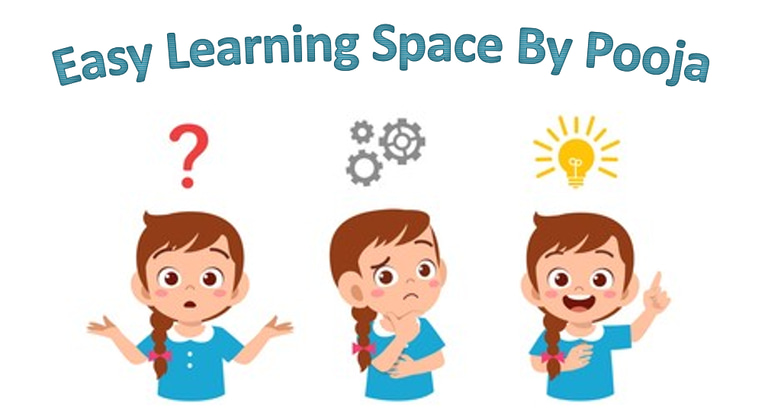Easy teaching and learning methods for parents and children
how to introduce smart learning for children, breaking the mold of traditional learning, managing attention span of children
PARENTS, TEACHERS, PARTNERS, EDUCATION, LEARNING, TEACHING, COLLABORATIONA BLOG WITH MANY VOICES. VOICES OF AN EDUCATOR, TEACHERS, PRINCIPALS, SENIOR FACULTY MEMBERS AND CHILD PSYCHOLOGISTS BUILDING A COMMUNITY FOR THE HOLISTIC DEVELOPMENT OF CHILDREN AUTISM SPECTRUM MOTHER'S MENTAL HEALTH OF A MOTHER NURTURING CHILDREN
Pooja
6/11/20255 min read
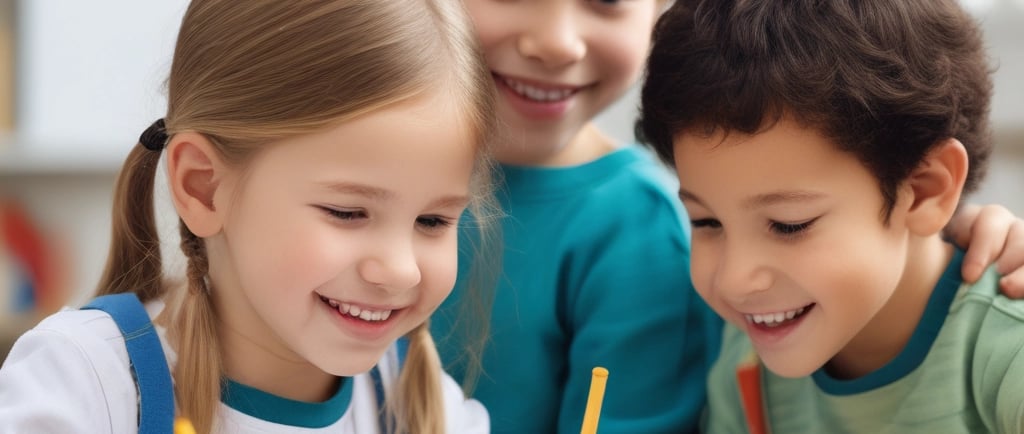

welcome back to my blog after a while.
It has been quite some time for me to get back to my blog posts, but promising that I will be more regular. Few days back I saw one video on the internet that showed 10 things that do not exist anymore. There were some pictures of ring dial telephone (which is now kept in the museum as antique model), there were VCR's (millennials will know), CD's, some cars from the 90's era etc. It got me wondering, how far we have come as a generation. We have learnt so many things. We have witnessed unimaginable things, yet there are a lot of traditional mind blocks some of us still have.
We are still to a certain level obsessed with the marks and grades of our children. We tend to care a lot about their ranking in the class their academic performances mean so much to us. Here, in this aspect we have not changed much and are similar to our parents' generation. Thy were also extremely judgmental about our scores and ranks in the class. Some of my friends have the worst traumas of exams even till date. They wake up in anxiety and fear of giving exams, they are in their late 30's mind you. Such are the experiences of us for what we were subjected to as children.
Since our generation has many different approaches for parenting, might as well change things about how to make learning fun for our children. The schools are doing an absolutely amazing job in making teaching process fun and student driven. The classes are designed in an interactive manner, there are discussions, debates and learning happen both ways. The teachers are also very open to take the feedback from students and in the meanwhile learn so much from them as well. Now, when they are home, how do they implement the things they have already learnt? In today's day and age, learning is not just restricted to the classroom environment, it goes above and beyond classroom. The teacher and us parents must work as hand in glove for the overall development of our children.
Here are a few list of maxims of teaching I would like to share with you all. Maxims are short statements or phrases coined by several educational developers over a period of time, that provide an insight to how can we navigate the process education.
Proceed from known to unknown
Proceed from concrete to abstract
Proceed from easy to difficult
Proceed from whole to part
Proceed from psychological to logical
Proceed from simple to complex
Proceed from analysis to synthesis
Proceed from empirical to rational
Proceed from actual to representative
Proceed from definite to indefinite.
Known to unknown: This is the golden rule that is applicable to all the children across age groups. From tiny tots of kindergarten to young adults in the high school, this rule works like magic. There are a lot of things that students already know, use those simple things every day to make the child understand the unknown. For kindergarten children when you want to start teaching alphabets, you cannot start by saying this is A, this is B this is c. Nope, like I mentioned earlier in this blog, we are trying to break the traditional mold and start with something more interesting and fun. By the time they are ready to learn alphabets I am sure they have started making sounds from their vocal chords. You can use the sound method (phonics) to make them aware of alphabets. " Say aaaa "ant" begins with the letter "A". You can go on like this from known to unknown.
For primary school children, say they already know what is cooking and some process that takes place in the kitchen where their food is prepared. You can use this to explain to them a little complicated process of photosynthesis. While teaching something new in "English" literature, you can use your own mother tongue as reference. Take them to grocery shopping to understand about addition subtraction. If you want to teach inflation, ask them to keep a track on how the price of milk, petrol, oil and gases keep changing time and again. Help them to track and calculate. Like I said, this method works for all the children across ages to learn effectively.
Concrete to abstract : Mostly applicable towards younger students. If you want to teach them numbers, counting or introduce math, this technique elevates your process of helping them understand. Before you start teaching them numbers (abstract) start by helping them to hold concrete objects like stones, beads, toy cars and trains etc. Start counting the concrete objects and thereby helping them to count and bring general math into their learning. While teaching chemical reactions in the lab, let them note down the physical and chemical change, while you explain them the underlying scientific principle behind it. Visiting a near by nursey to understand plants of different kinds, their care and benefits. The list can go on and on.
Easy to difficult : In English, teach simple words and name them. Like "a, an, the" articles. Use simple words and join them in a structure to create a sentence. Talk about an event, which is well known, like "world war 1" then discuss in detail about perceptive of different countries, the ethical code of conduct during the war and so on. Use basic math like addition subtraction and division and slowly move towards explaining more about the concept of "whole" "part" "fraction".
Analysis to synthesis: To put this in simple words, you need to understand how you can break down small concepts of a topic for better understanding and out all the concepts together to make the understanding of the whole topic. For example understanding(analyzing) the functions of eyes, ears, nose and tongue to the concept of sense organs and their importance (synthesis). Analyzing small events in history to ultimately understanding the event that led to a particular historical event.
Proceed from empirical to rational: It means understanding of something through observation and knowledge (empirical) and later drawing conclusions through understanding and analyzing. Children observing the day when it rains (empirical) and later understanding the process of evaporation, condensation, precipitation and so on
So here was my small article to help you understand and navigate the learning among children. Please do share your thoughts with me regarding this article. You can also suggest me any topic you would like me to cover. I will try to do it with the best of my ability.
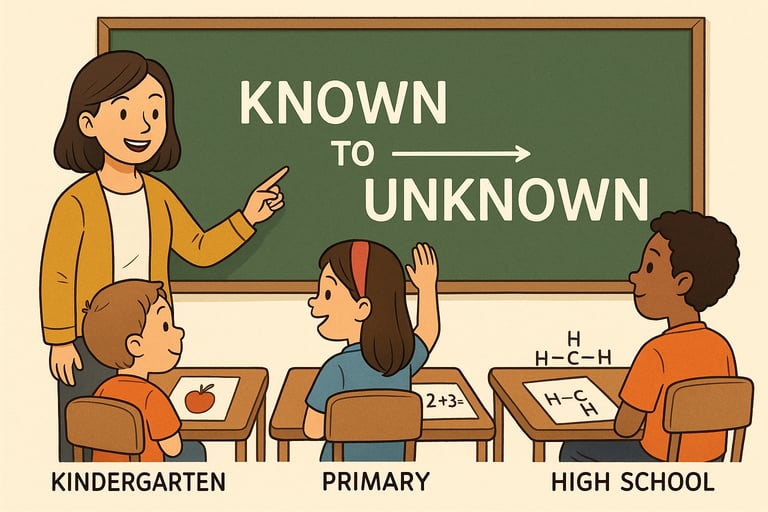

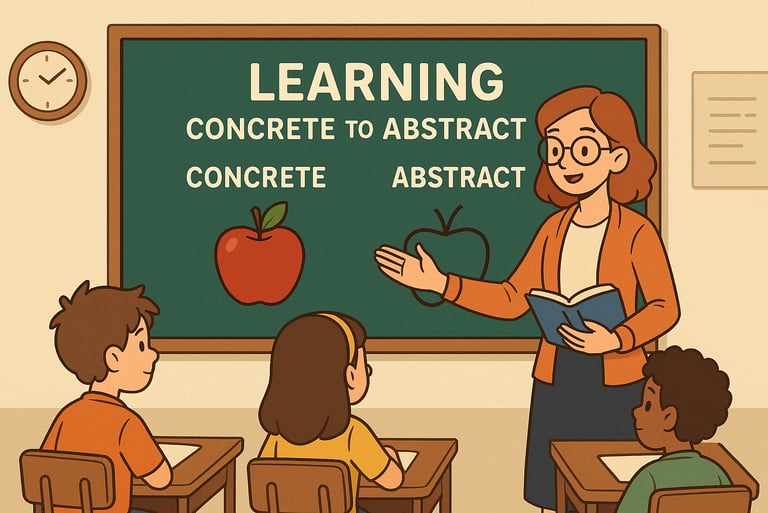

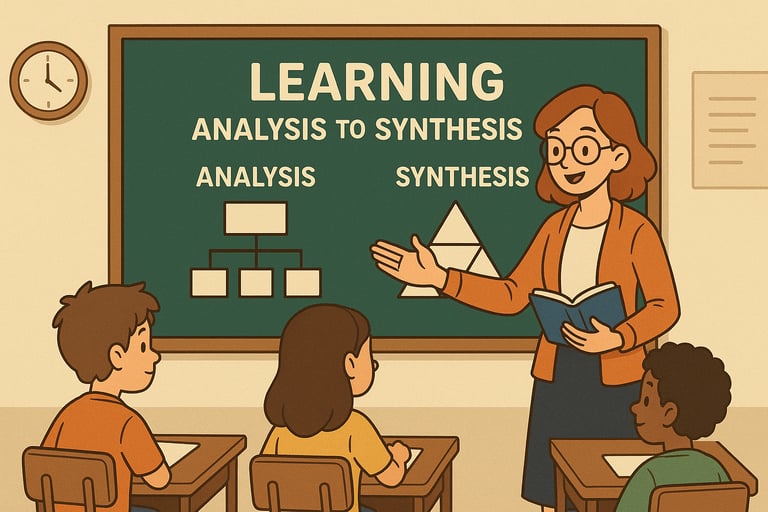

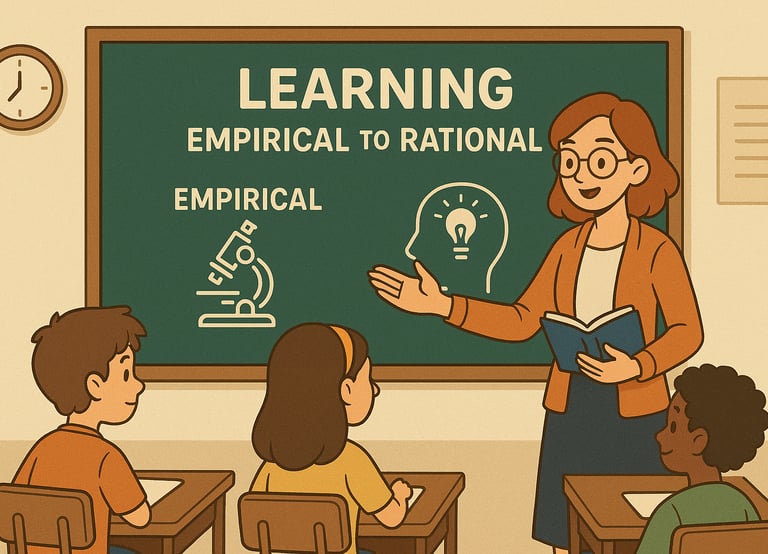

Address
Pooja
Bangalore
Contacts
easylearningspacebypooja@gmail.com
Subscribe to our newsletter
This blog is for educational purpose only
All the information on this website – www.easylearningspace.com – is published in good faith and for general educational and informational purposes only. I aim to provide helpful teaching tips and resources, but I make no warranties about the completeness, reliability, and accuracy of this information.
Any action you take upon the information you find on this website is strictly at your own risk. I will not be liable for any losses
